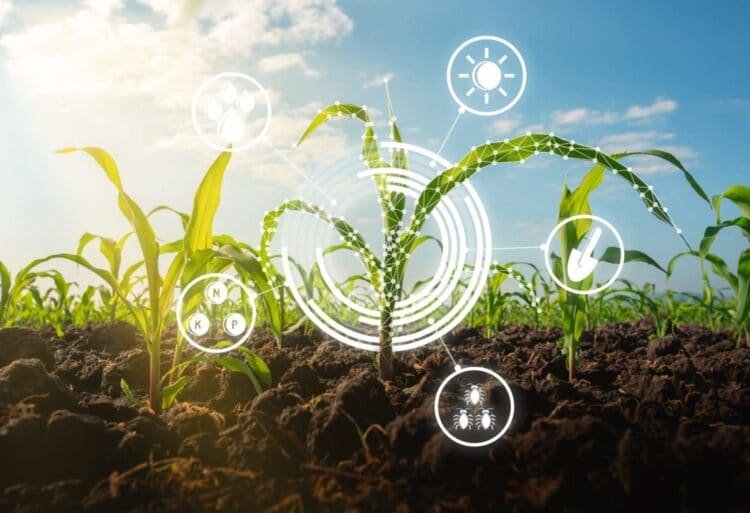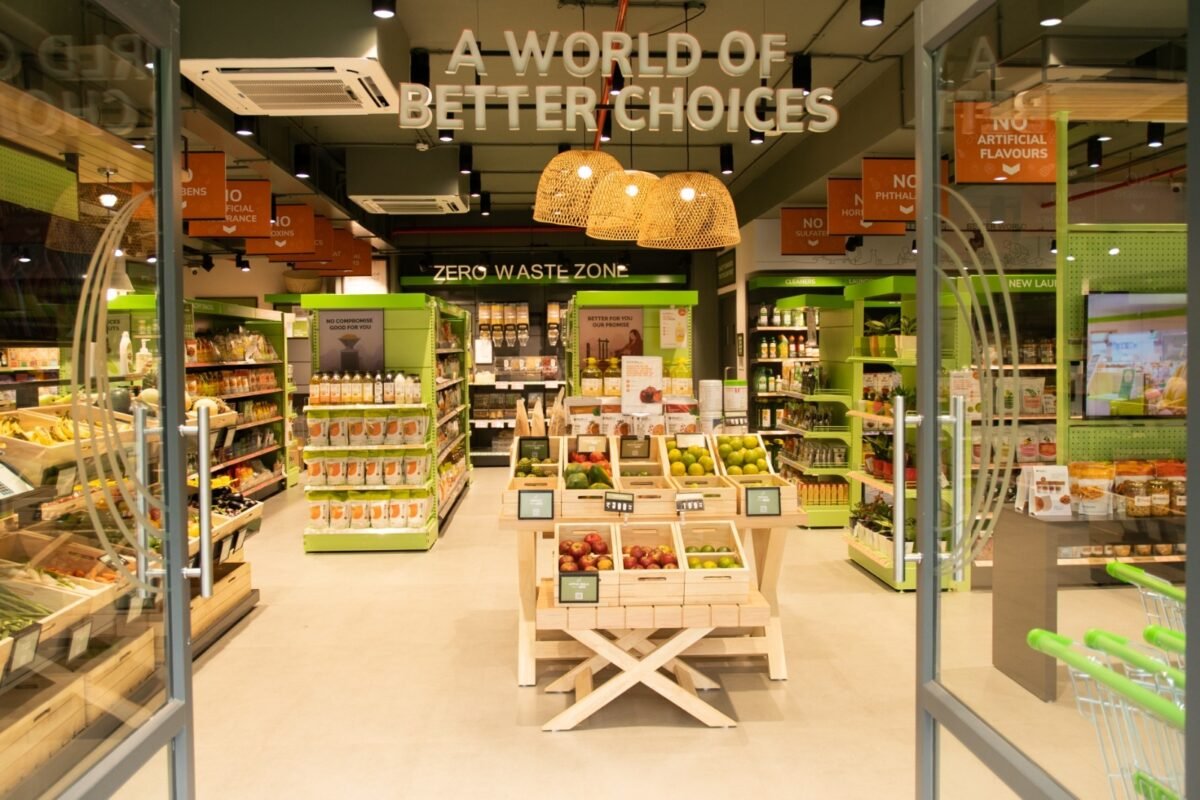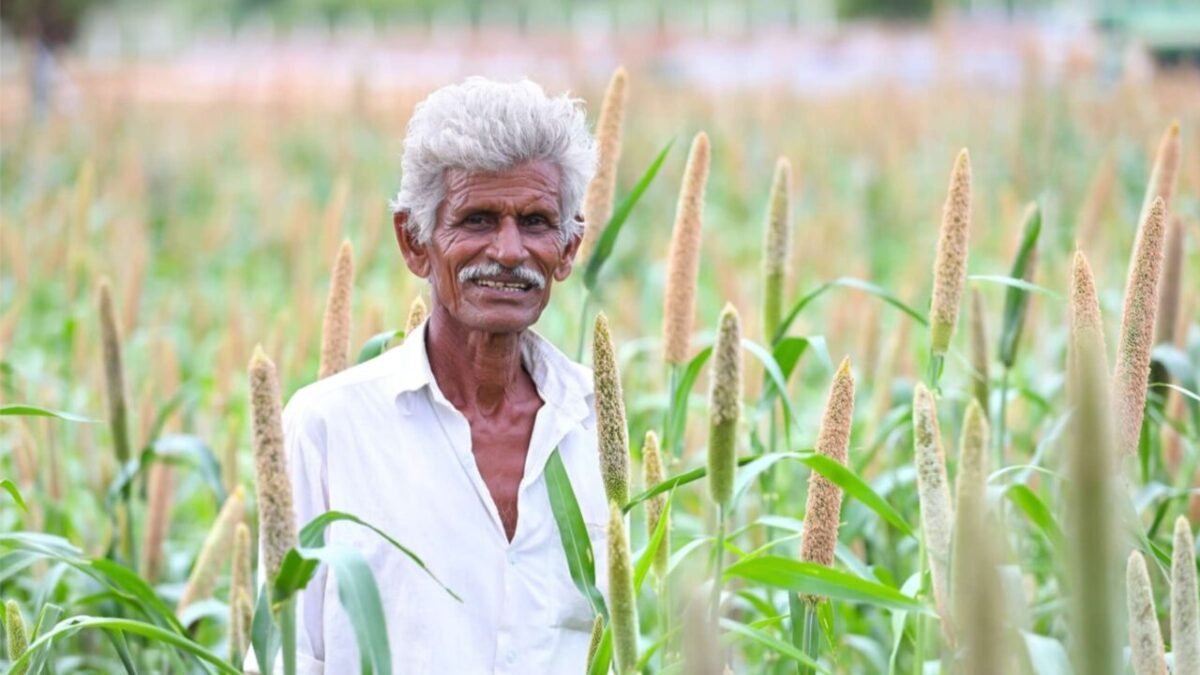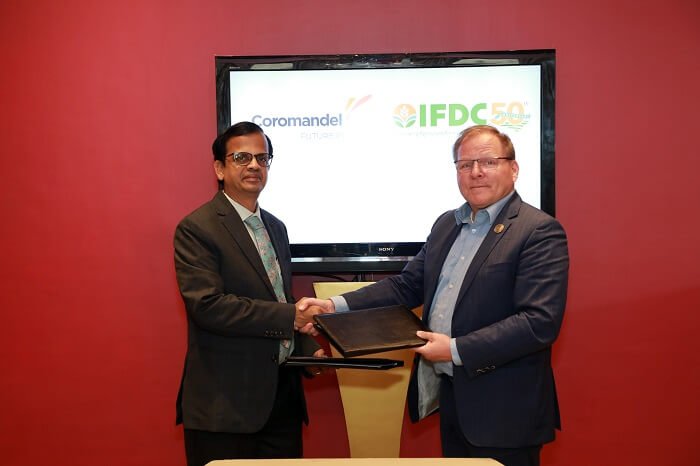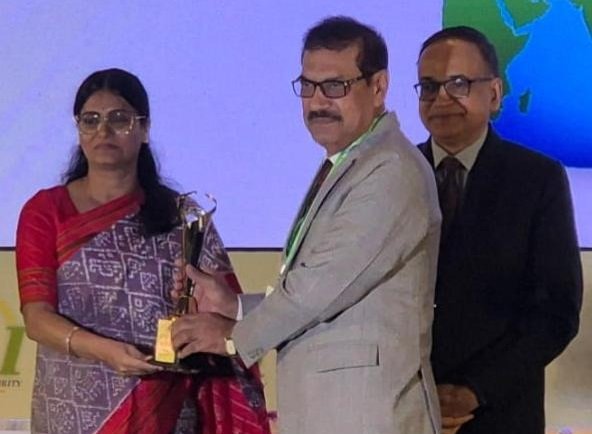The agricultural industry continues to be India’s principal economic sector, and it is responsible for the employment of more than half of the country’s workforce. Recent advancements in artificial intelligence (AI) are transforming the agricultural landscape by introducing fresh techniques to boost crop yields and provide support to marginal farmers. This is all happening as a result of the convergence of these two fields.
Agritech companies are becoming increasingly prevalent in India, which is the key element that is driving the deployment of artificial intelligence in the agricultural industry. Speaking on the latest development in AI in the agri sector, Kartheeswaran Kandasamy, CEO & Co-Founder, Ninjacart stated, “The breakthrough artificial intelligence solutions that are being created by these companies are aimed at the small and marginal farmers as their target audience. For example, a number of companies are currently working on the development of applications that are driven by artificial intelligence and provide recommendations on crop management in real time. On the contrary, other firms are utilising machine learning in order to create sophisticated predictive models for the state of the soil and the environmental circumstances.”
Expanding Influence of AI in Agriculture
Artificial intelligence is responsible for revolutionising a number of different industries, and agriculture is one of those businesses that is being affected by this revolution. The agriculture sector is currently engaging in the application of technologies that are driven by artificial intelligence in order to address a number of key difficulties that are currently being faced. The ability to forecast weather patterns and maximise irrigation efficiency are two of the problems that need to be overcome on an urgent basis. Other challenges include monitoring crop health and improving supply chain efficiency. These technological advancements not only cause an increase in productivity, but they also provide farmers with the opportunity to make decisions based on data, which in turn makes them more resistant to the effects of climate change and the volatility that exists in the market.
Moreover, the integration of AI into agricultural practices is paving the way for innovative approaches that go beyond traditional farming methods such as:
Precision Farming: Precision farming, which makes use of data-driven insights to improve crop management, is made possible by artificial intelligence technologies. Artificial intelligence is able to offer farmers with specific information about the health of the soil, the amounts of moisture in the soil, and the conditions of the crop by evaluating data from satellites, drones, and sensors. This makes it possible for farmers to apply the appropriate quantity of water, fertilisers, and pesticides precisely where they are required, which in turn helps to reduce waste and increase yields.
Predictive Analytics: For the purpose of forecasting crop yields and associated threats, artificial intelligence algorithms can examine historical data, weather patterns, and market movements. Farmers are able to make more informed decisions about planting schedules, crop selection, and resource allocation with the assistance of this predictive capability.
Automated Systems: The employment of automated devices that are powered by artificial intelligence, like robotic harvesters and drones, is becoming increasingly common in order to expedite farming operations. Using these technologies, farmers are able to accomplish operations such as planting, watering, and harvesting with more efficiency and precision, which in turn reduces the amount of work that is required of them and simultaneously increases their production.
Transforming Farmer Interactions with Technology:
The usage of artificial intelligence chatbots and virtual assistants, such as WhatsApp AI bots, is one of the most interesting breakthroughs in artificial intelligence for the agricultural sector in India. Farmers are gaining access to information and interacting with technology in a way that is being revolutionised by these bots. WhatsApp bots that are powered by artificial intelligence are providing farmers with real-time information on a variety of areas of farming, such as weather forecasts, suggestions for crop management, and market prices.
Govt push for tech reforms in agri sector
A significant commitment to modernising agriculture has been established by the government of India over the course of the past few years. This commitment has been made through the implementation of policies that are advantageous and the increase of budget allocations. Because of the significant rise in investment, the budget for agriculture has increased from Rs 30,000 crore to Rs 1.3 lakh crore.
“The Digital Agriculture Mission and the Pradhan Mantri Krishi Sinchayee Yojana (PMKSY) are two examples of government programmes that are designed to encourage farmers to utilise a variety of digital tools and technology in their agricultural operations. Both of these programmes are meant to encourage farmers to employ digital tools and technologies. The implementation of artificial intelligence and other forms of technology into conventional farming operations is becoming less difficult as a result of these programmes. This, in turn, makes it easier for farmers to gain access to resources and information in a more efficient manner,” said Kandasamy.
Impact and Future Prospects
The application of artificial intelligence (AI) in Indian agriculture is already producing favourable outcomes. Enhanced crop yields, lower input costs, and enhanced resource management are some of the benefits that farmers who use tools and technology driven by artificial intelligence have reported. Because they have access to information that is both fast and accurate, farmers are able to improve their decision-making abilities and better adjust to shifting environmental situations.
“As we look to the future, the potential for artificial intelligence to significantly alter agriculture in India is enormous. There is a good chance that increasingly sophisticated solutions for crop management, pest control, and resource optimisation may emerge as a result of ongoing research and investment in artificial intelligence technologies. Additionally, when artificial intelligence products become more readily available and more reasonably priced, they will be able to reach a wider range of farmers, including those who live in places that are underserved and distant,” added Kandasamy.
Way Forward
There is a promising way to enhance the productivity and sustainability of agriculture in India, and that strategy is to increase agricultural yields through the application of artificial intelligence. Small and marginal farmers are gaining access to tools and information that were previously out of their reach.
This is a result of a number of factors, including the rapid rise of agritech businesses, the substantial assistance provided by the government, and the revolutionary potential of chatbots powered by artificial intelligence. It is likely that if these technologies continue to progress, they may be able to solve a major number of the problems that Indian farmers are currently suffering. As a result, this will pave the path for an agricultural industry that is not only more prosperous but also more robust.
By Nitin Konde
The agricultural industry continues to be India's



